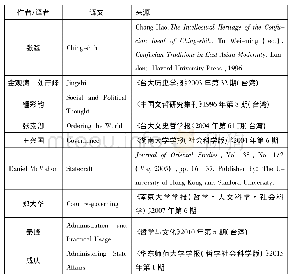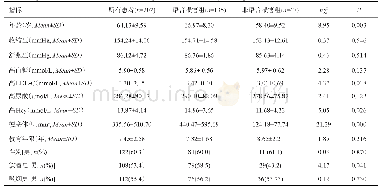《表3:从“做”“作”“有”与“make do own”比较汉英语言的构词特色》
 提示:宽带有限、当前游客访问压缩模式
提示:宽带有限、当前游客访问压缩模式
本系列图表出处文件名:随高清版一同展现
《从“做”“作”“有”与“make do own”比较汉英语言的构词特色》
而英语,无论own,possess或have(用其本义时),都没有这么许多固定搭配。只找到have能以“反复”辞格构成几种惯用语和谚语:the haves and the have-nots(有产者和无产者),Have God and have all.(得到神佑,得到所有)He that would have what he has not,should do what he does not.(渴望取得自己所没有,就要力行自己所未行)动词own用于习惯说法as if one owns the place(他俨然是一方霸主)。在英语,如要表达汉语那些双音节词或四字以上成语的相应意义,就要借助own,possess或者have以外诸多相关词汇:赋有be gifted/endowed with;富有abound in/be rich in/roll in;负有be responsible for;附有with…attached to it;别有洞天display an exceptional charm/make an altogether different scene;心有余悸one’s heart keeps throbbing with fear;有其父必有其子like father like son;有福同享,有难同当share weal and woe(w-w辅音头韵)/stick together through thick and thin(th-th-th辅音头韵;这是英语词句用得较多一种的修辞妙法)。
| 图表编号 | XD00164149300 严禁用于非法目的 |
|---|---|
| 绘制时间 | 2020.02.15 |
| 作者 | 陈雪欣 |
| 绘制单位 | 河北师范大学附属实验中学 |
| 更多格式 | 高清、无水印(增值服务) |





